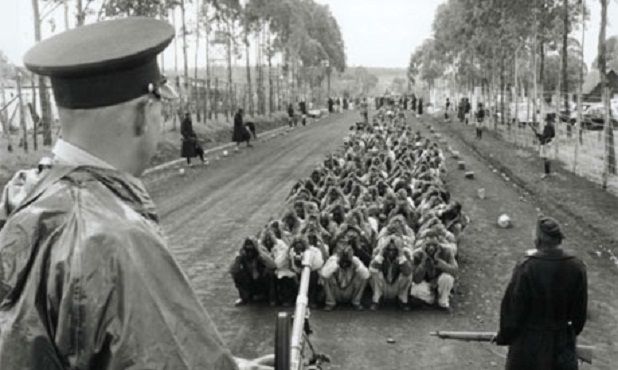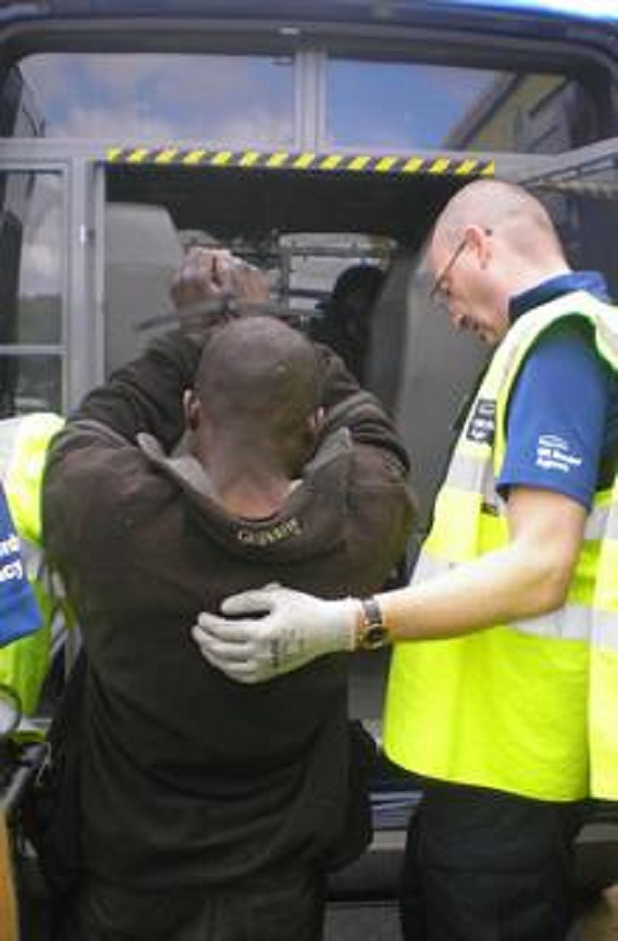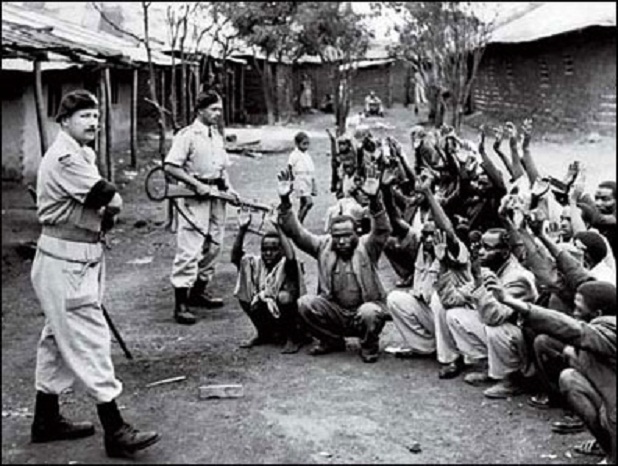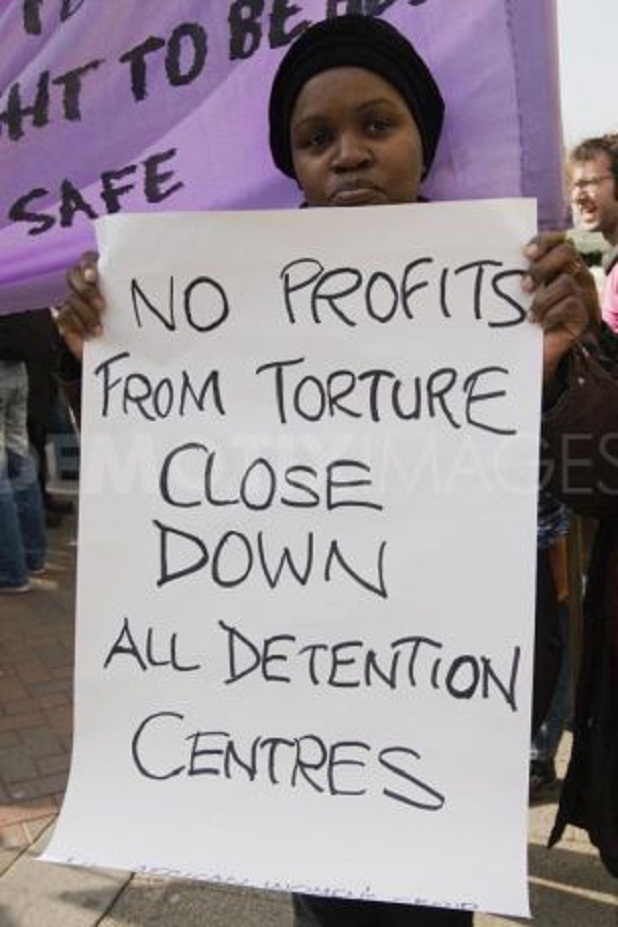The Anti Imperialist Migrant Solidarity, Global Resistance
New in Ceasefire, The Anti-Imperialist - Posted on Sunday, July 3, 2011 9:00 - 0 Comments
 By Adam Elliott-Cooper
By Adam Elliott-Cooper
The European nation-state is a structure of hierarchical power which was imposed upon Africa, South Asia, Australasia and the Americas during the formal colonial period first conceived in 1498. The states were modelled on the structures which European governments and monarchs used to control their own people – often with devastating effects.
The Berlin Conference of 1884 involved the dominant powers of Western Europe calving up Africa into separate nation-states for them to control. Most of the boundaries were drawn by people who had never stepped foot in Africa, disregarding existing territorial boundaries and prevalent geographical freedoms that numerous African societies had enjoyed and relied on for survival and prosperity for millennia.
The structure of the European nation-state was not imposed solely in order to determine which European power now owned which portion of the African continent, its resources and, in effect, its people. The state is a power structure, which the European powers would use to dismantle and control African societies and their populations.
Controlling the state allowed European colonialism to penetrate many of the most fundamental aspects of the lives of the colonised. Education and Schools, often portrayed as a positive aspect of colonialism, were intrinsic to the maintenance of European supremacy. Nelson Mandela, in his bestselling autobiography, Long Walk to Freedom, recounts the jubilant cheering he and his classmates were taught to deliver whenever a White South African entered the classroom. Europeans were the “saviours” of Africa, and a people to be revered.
The colonial-controlled state adopted similar patterns in its control over the Church and workplaces. But its most immediately destructive arm was physical control. Within its borders (and at times beyond), the colonial state could at any time call upon its armed forces to curb freedom of expression, movement and life itself. Challenging the dominance of state power over education, jobs and monopoly of violence, was therefore the only option for anti-colonial movements to overcome imperial control.
Today, the interests of the British state either converge with the majority of the media and educational institutions, or are directly or indirectly controlled by them. The same corporate interests which own the media and fund top universities also lobby and fund political parties and their campaigns.
 The portrayal of colonised peoples therefore continues to be controlled by interests aligned with British state power. The most popular stories in mainstream media routinely feature sex offenders from Pakistan, violent gangs from the Caribbean, fraudsters from West Africa and of course Islamists, who could hail from any number of colonised nations.
The portrayal of colonised peoples therefore continues to be controlled by interests aligned with British state power. The most popular stories in mainstream media routinely feature sex offenders from Pakistan, violent gangs from the Caribbean, fraudsters from West Africa and of course Islamists, who could hail from any number of colonised nations.
Although evidence tells us that sex offenders are mainly white, serious violence in Britain is not dominated by African Caribbeans and the extreme terrorism carried out by Europe and its allies on Iraq, Afghanistan, Pakistan, Yemen and Libya (not to mention the terrorism they sponsor in Congo, Saudi, Columbia and elsewhere) is far more destructive than 7/7, indicates that crimes are linked to colonised peoples despite evidence to the contrary, and therefore with a purpose other than reporting the full truth.
The colonial state employed waves of violent coercion to control the movement of populations. This form of ethnic cleansing was most pronounced in the settler colonies of Rhodesia (now Zimbabwe and Zambia) and South Africa.
Today, European nations have far less direct control over the state structures of the once formally colonised nations. Economic underdevelopment through unfair terms of trade effecting job markets, healthcare provision and other social services, however, means the people of the Global South continue to push for access to the wealth of their own nations, the majority of which flows to Europe and North America.
It is therefore unsurprising that huge numbers of Africans, Asians and South American people make their way to Europe in the hope of attaining the jobs and services denied to them by the economic policies push by Britain and its allies.
It is even less surprising that large numbers of asylum seekers wishing to enter the relative safety of Europe after fleeing conflicts in which Europe and North America are either engaged in, or fund and supply weapons to.
 The “terrorists” as portrayed by the British during the 1950s were the Mau-Mau of Kenya, whose violent uprising against the colonial state was met with harsh repression, culminating in torture, forced starvation and death camps, leading to the murder of over 13,000 Kenyan terror suspects.
The “terrorists” as portrayed by the British during the 1950s were the Mau-Mau of Kenya, whose violent uprising against the colonial state was met with harsh repression, culminating in torture, forced starvation and death camps, leading to the murder of over 13,000 Kenyan terror suspects.
The structures of state power bureaucratised and administered some of the most destructive manifestations of violence of the century, in order to maintain control of the people within its borders.
In order to maintain imperial dominance in the 21st Century, Britain has constructed border patrols and police forces alongside private security firms to repress the people of the Global South through a rationale not dissimilar from the colonial state control of the 19th and 20th century.
The immigration detention centres (recently relabelled “Removal Centres”, in another nod to Orwellian Newspeak) where people are being kept indefinitely, often witness lengthy hunger strikes by the detainees, as has happened recently at Campsfield Detention Centre, Oxford, where Iraqi detainees explained: “if we were returned we would be left to survive for ourselves on the streets with nothing. Some of us don’t even know if our family members are alive or dead because we haven’t had any contact with them for a long time”.
Last week, thirty protesters from No Borders, Stop Deportation and other groups blocked the joint entrance to the two detention centres near Heathrow airport. Six activists encased their arms in glass and plastic tubes attached to concrete barrels. Coaches were supposed to take around 70 people to the airport for deportation, accompanied by twice as many immigration officers and private security guards.
 Past actions have enabled detainees to get court injunctions through in order to force the courts to recognise their legal right to stay. Direct action against the state’s monopoly on physical control of people is a well-proven method of resisting the colonial state.
Past actions have enabled detainees to get court injunctions through in order to force the courts to recognise their legal right to stay. Direct action against the state’s monopoly on physical control of people is a well-proven method of resisting the colonial state.
Often viewed through the lens of human rights, anti-deportation and no borders campaign/activist groups are in fact engaging in a form of anti-imperialism which began life in the colonised countries.
Challenging the imperial state from within its core in addition to its military invasions and occupations abroad, offers a modern manifestation of anti-imperialism in which the fight against the empire and its legacies is given another dimension.
If migrant solidarity in Europe becomes as widespread as had the resistance to Empire in colonised nations, an anti-imperialism which builds on the rich history of resistance to state-power led by the Mau-Mau, the anti-apartheid movement and others, can delegitimize, weaken and dismantle the Eurocentric nation-state as we know it.
Adam Elliott-Cooper, a writer and activist, is Ceasefire Associate editor. His column on race politics appears every other Sunday.


Leave a Reply